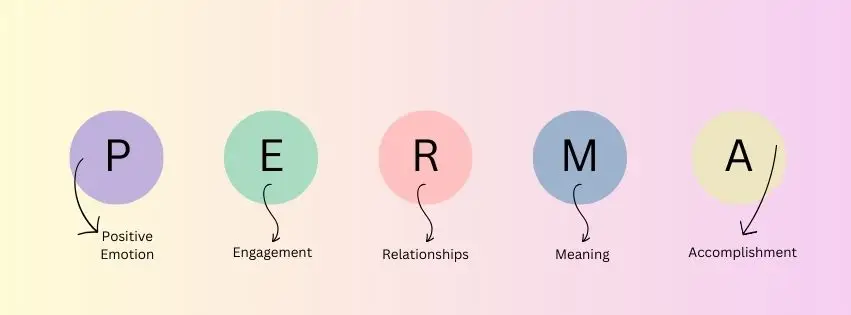The Science of Happiness: Why It’s More Than Just a Mood
Introduction: Unpacking the Mystery of Happiness
What is the science of happiness? Why is it important? What does it mean to be truly happy? Is happiness merely a fleeting feeling that comes and goes, or is it something more profound and sustainable? For centuries, philosophers, psychologists, and scientists have pondered the nature of happiness, but it is only in recent decades that we have started to understand its complexities scientifically. Thanks to the rise of positive psychology, we now recognize that happiness is not just a state of mind but a multifaceted experience that impacts every aspect of our lives—from our physical health to our relationships and our overall success in life. This article will delve into the scientific foundations of happiness, why it matters, and how you can cultivate it for lasting well-being.

The Science of Happiness: What Do We Know?
The science of happiness, often referred to as positive psychology, focuses on what makes life worth living. Unlike traditional psychology, which often centers on diagnosing and treating mental illness, positive psychology emphasizes the study of positive emotions, strengths, and conditions that allow individuals and communities to thrive.
The Foundations of Positive Psychology
Positive psychology was popularized by Martin Seligman in the late 1990s. Seligman first proposed a theory called the Authentic Happiness theory, claiming that happiness is the main subject of positive psychology. However, he soon realized that happiness is an emotion and may as such be too mood dependent. Therefore, he expanded his initial theory into a much broader PERMA Well-being theory. He proposed that well-being could be broken down into measurable components, forming the basis for the PERMA model: Positive Emotion, Engagement, Relationships, Meaning, and Accomplishment. Each of these components is essential to achieving a fulfilled and happy life, or in his words, a state of flourishing. While the emotion of happiness is primarily included in the Positive Emotion component of the PERMA model, each of the components contributes to a person’s sense of joy and satisfaction.

Research Supporting the Science of Happiness
Numerous studies support the idea that happiness is not just a temporary emotional high or its pursuit a purely hedonistic endeavor. For example, research indicates that people who experience more positive emotions live longer, healthier lives. They are also more likely to have stronger social connections, greater creativity, enhanced productivity, and better problem-solving abilities. These benefits underscore that happiness is not a luxury; it’s a necessity for holistic well-being.
Increasing Well-being: Overcoming Genetic and Adaptation Limits
Pursuing well-being is essential, yet research on effectively enhancing and sustaining well-being has faced challenges, mainly due to skepticism from theories like genetic determinism and the hedonic treadmill. Genetic determinism suggests that well-being is largely predetermined, with around 50% being heritable. However, newer studies reveal that environmental factors, through mechanisms like epigenetics, can also significantly influence well-being. Similarly, the hedonic treadmill theory posits that any improvements in well-being are short-lived due to our tendency to adapt to life changes. Recent research counters this by showing that adaptation can vary and that specific strategies, such as savoring positive experiences, can help maintain elevated well-being over time. However, the science of happiness and positive psychology shows that there are certain activities (also known as positive psychology interventions) that promote lasting happiness. This shows that happiness is indeed more than just a mood—it’s a science-backed pursuit.

Why Happiness Matters: Beyond Just Feeling Good
Happiness is not merely about feeling good. It plays a critical role in shaping our life experiences and outcomes. Here’s why happiness is so crucial:
- Health and Longevity
Research consistently shows that happier people tend to have lower levels of stress hormones, which reduces their risk of chronic illnesses like heart disease and diabetes. Research highlights how happiness is linked to improved immune function, better pain management, and even longer life expectancy. - Mental Health
Happiness can act as a buffer against mental health issues like anxiety and depression. Positive emotions help us build resilience, which allows us to cope more effectively with life’s challenges. When we cultivate happiness, we equip ourselves with tools to manage stress better, thereby enhancing our mental health. - Productivity and Creativity
Studies have shown that happy employees are more productive. A report from the Harvard Business Review revealed that happy workers are more productive, more accurate, and have 37% higher sales compared to their less happy counterparts. Happiness fosters a positive work environment, leading to higher engagement, reduced absenteeism, and better overall performance. - Relationships and Social Connections
Happiness strengthens relationships. People who are happier tend to have more meaningful connections with others. Positive emotions can spread through social networks, creating a ripple effect that improves the well-being of communities. Social connections, in turn, reinforce our happiness, creating a beneficial cycle. - Personal Growth and Fulfillment
Happiness encourages us to seek out new experiences and challenges, which are essential for personal growth. When we are happy, we are more likely to step out of our comfort zones, set ambitious goals, and work towards achieving them. This pursuit of personal fulfillment leads to a deeper sense of purpose and meaning in life.

How to Cultivate Happiness: Practical Strategies
Knowing that happiness has profound implications for our health, relationships, and productivity, how can we cultivate it? Here are some scientifically-backed strategies:
Leverage Your Signature Strengths
Identifying and using your VIA (Values in Action) signature strengths in your daily activities can significantly enhance your well-being. Whether it’s kindness, creativity, or leadership, finding ways to apply your strengths can lead to a more satisfying and meaningful life.
Practice Gratitude
The practice of gratitude has been linked to greater happiness. Taking time each day to reflect on what you are thankful for can boost your mood and overall life satisfaction. Gratitude helps shift your focus from what you lack to what you have, fostering a sense of abundance and joy.
Engage in Positive Relationships
Building and maintaining healthy relationships is vital for happiness. Invest time in nurturing your connections with family, friends, and colleagues. Positive relationships provide emotional support, enhance your sense of belonging, and contribute to your happiness.
Mindfulness and Meditation
Engaging in mindfulness practices, such as meditation, can help you stay present and manage stress. Research shows that mindfulness enhances emotional regulation, reduces negative thinking, and promotes a sense of calm and well-being.
Pursue Meaningful Goals
Setting and working towards goals that are aligned with your values can increase your sense of purpose. When your actions reflect your deepest values, you experience a sense of fulfillment and satisfaction that goes beyond temporary pleasure.
Physical Activity and Well-being
Regular exercise is a natural mood booster. Physical activity releases endorphins, which can reduce stress and enhance happiness. Incorporating exercise into your daily routine is an effective way to improve both your mental and physical health.
Acts of Kindness
Engaging in acts of kindness, whether big or small, can elevate your mood and contribute to a sense of connectedness. Research suggests that helping others not only benefits them but also enhances your happiness.
Sleep
Amazingly, studies have shown that even something as simple as getting a good night’s sleep can boost our happiness levels and mood. Ensuring adequate sleep, typically seven or more hours a night, has been linked to greater life satisfaction, contentment, and positivity.
Happiness Coaching
Happiness coaching is like a fun online class where you learn all there is to know about the art and science of happiness. By learning what keeps you from truly enjoying your life, how you can overcome such obstacles, which activities can make a lasting difference in your happiness levels, and having a coach that will keep you accountable, you can become the happiest version of yourself and thus also healthier, wealthier, and more successful.
Quick Tip: If you wish to sustainably enhance your well-being, consider our Happiness Coaching program for individuals. You can also download our free guide that reveals the 3 ultimate steps to sustainable happiness or book a free consultation call here.

Happiness and the Workplace
The science of happiness isn’t just personal; it’s also professional. Businesses that prioritize the well-being of their employees can see significant benefits, including increased productivity, higher employee retention, and better customer satisfaction. Positive psychology interventions in the workplace, such as identifying and using signature strengths, promoting work-life balance, recognizing achievements, and fostering a positive work culture, can make a substantial difference in organizational success.
Quick Tip: If you’re looking to enhance your team’s happiness and productivity, consider our Positive Psychology Programs for businesses. We offer workshops and consulting services tailored to boost employee well-being and create a thriving workplace culture.
Conclusion: Happiness as a Pathway to a Better Life
Happiness is not a luxury; it’s a fundamental aspect of a well-lived life. It goes beyond just feeling good—it impacts our health, relationships, success, and overall quality of life. By understanding the science of happiness and applying practical strategies to enhance it, we can cultivate a deeper, more enduring sense of well-being. Remember, happiness is not something that happens to us; it’s something we can actively create through our actions, choices, and mindset.
Resources
The information in this article is grounded in scientific research. If you’re interested in specific studies, feel free to reach out to us.
For daily doses of joy, positivity, inspiration, and motivation, be sure to follow us on Instagram.
Za naše bralce v Sloveniji
Če vas zanima več o psihoterapiji in iskanju trajne sreče, preberite naslednje članke: Psihoterapija Obala, 5 ključev do trajne sreče in notranjega miru, Najboljši psihoterapevti v Sloveniji: Kako se hitro spopasti s stresom, Psiholog v Kopru: Kako odpraviti težave s psihoterapijo in RTT terapijo, in Psihoterapija Online: Prednosti in učinkovitost terapije na daljavo.


